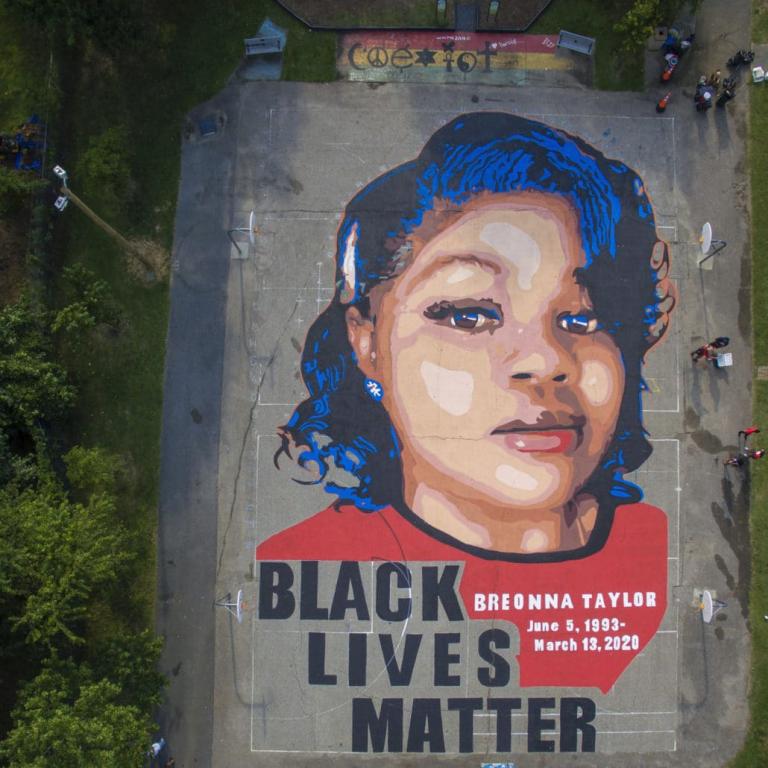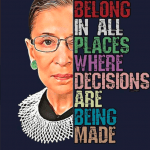The Mayor of Louisville has declared a state of emergency.
I live in Louisville, and this feels strange to me. In my day job, I am in the business of disaster relief. I am closely acquainted with the horrors of the wildfires in the West right now; multiple, subsequent hurricanes in the gulf; and a few other lurking Tropical Storms that could evolve quickly. I spend my days looking at pictures and writing stories and social media posts about people who have lost their homes, people who are without power for weeks on end, people who have evacuated and have no idea what life will look like when they return. Here at my house in Kentucky, the air is clear. It is crisp, beautiful fall weather. Not a cloud in sight. The ground is dry, and if my power goes out due to a fluke thunderstorm or human error, the good folks at LG&E will have it back up and running within the hour.
What’s the emergency?
“The potential for civil unrest.” Six months after officers shot and killed 26-year-old Breonna Taylor–at home, in her bed, while she slept, the Kentucky Attorney General is close to announcing whether or not his office will bring charges against the officers involved in her killing. The Mayor says the city “must be prepared.”

This tells us some things. There are reasons to believe charges will not be levied, including past statements from the AG. And several weeks ago, Taylor’s family received $12 million in a wrongful death suit. Thankfully, the suit also included a resolution to institute some police reforms.
While this is mostly speculation, the gut feeling about town is that “state of emergency” indicates a coming inaction– one that will lead to and escalation of the widespread protests and public outrage that have been happening around the city off and on for the past several months. If the final decision is not a move towards justice, it will be mayhem around here.
Perhaps the Mayor is wise to prepare for that eventuality. But it is also worth mentioning that, the last time the National Guard came to ‘help’ with the protests, a Black Louisville business owner was shot and killed. By the National Guard.
Maybe, as Mayor Fischer says, he just wants to protect the rights of protestors to peacefully demonstrate. He just wants to “provide an extra layer of security for protests.” But the irony of the headlines is striking.
Because racism is the emergency.
There may not be wildfires, floods, hurricanes or tornadoes heading for our city at the moment. But there is an ongoing emergency that hangs overhead, obstructing air quality, visibility, and the ease with which some of our neighbors can go about their lives. It has led to evacuations from certain parts of town. It continues to wreak havoc on those living at its epicenter, and it costs more lives each year than we will ever be able to quantify.
Racism is the emergency.
To the Mayor’s credit, he did recently recommend declaring racism a public health crisis. But what if our city truly declared racism an emergency?
What if the whole nation did?
What if we truly addressed systemic racial injustice with the urgency that we would a coming flood or fire? What if we all dropped everything to ensure that all of our neighbors were safe? What if this became the one thing that was at the center of everything for awhile?
What could be transformed.
My house is about 8 miles from downtown Louisville. Not the suburbs, exactly, but definitely a residential neighborhood that feels ‘safe,’ even if all hell breaks loose in Jefferson Square Park. I recognize the privilege of living anywhere that feels ‘safe’ from anything these days. And I’m asking myself some hard questions about how my family and I can truly be good neighbors to those who live at the heart of this crisis (geographically and otherwise); whose daily lives are the scene of an ongoing, unfolding, life-altering disaster. How can we improve the air quality, so to speak, for the whole city?
How do we show up when the verdict comes down, and it says that not all lives matter?
One way to show up is to vote– not just at a national level, but to get involved in local and state races as well. Of course, we need to unwind the national discourse of white supremacy from its very core, and that involves the highest offices. But often, the real, day-to-day decisions that most affect the lives and livelihoods of people of color begin and end in the State House, the Mayor’s office, the City Council. The more we know about, and get involved in these races, the stronger and more just our communities will be.
How are we engaging this conversation in our communities of faith? With our neighbors? In our schools? If there were a crisis that would truly affect each and every household in our city, this would be all we talked about for awhile. Maybe the day is finally coming that we realize– a disaster that affects any of our neighbors, affects us all.
There is no coming flood or fire, but the emergency is already here. And the real emergency is racism.
Racism is the emergency.
Racism is the emergency.
Racism is the emergency.












